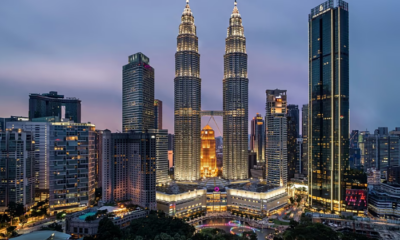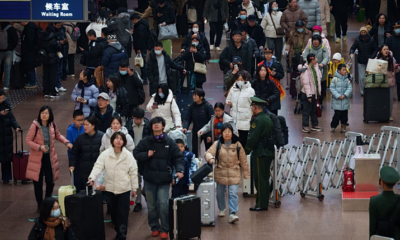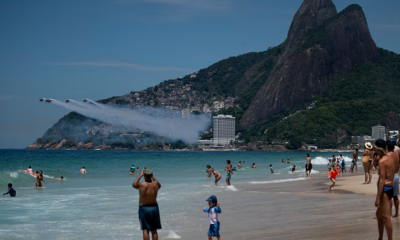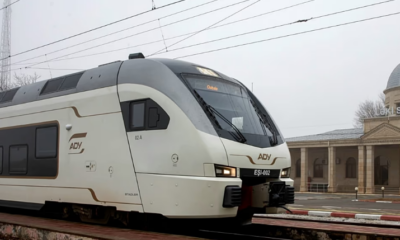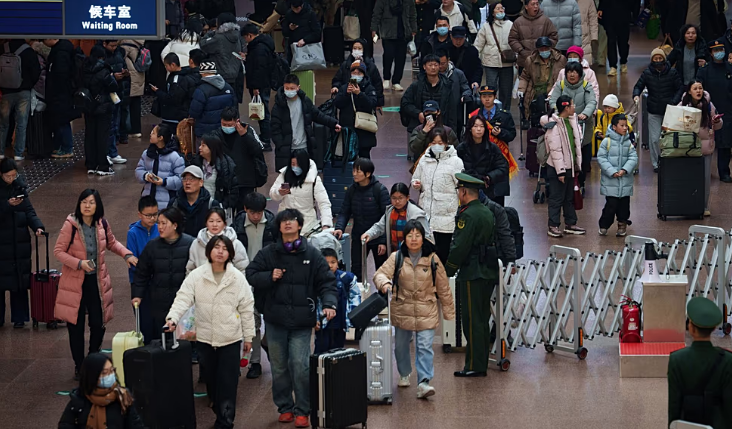Travel
AI Travel Planning Gains Popularity but Comes with Drawbacks
With artificial intelligence (AI) becoming an increasingly popular tool for simplifying travel planning, many travelers are turning to platforms like ChatGPT, Vacay, and GuideGeek to create customized itineraries in seconds. While AI can significantly reduce the time spent researching and booking trips, users are also discovering its limitations, particularly in outdated recommendations and lack of real-time insights.
According to Omio’s 2024 NowNext travel report, 44% of travelers in Europe and the U.S. have expressed interest in using AI for planning trips this year—an increase from 27% in 2023. AI’s appeal lies in its ability to quickly generate itineraries based on user preferences, providing recommendations for activities, accommodations, and budgeting. A survey by American Express also found that Gen Z and millennial travelers particularly appreciate AI’s assistance in managing expenses, finding activities, and even translating languages while abroad.
To test the effectiveness of AI trip planning, a traveler used ChatGPT, Vacay, and GuideGeek to arrange a three-day budget trip to Tallinn, Estonia. The AI tools generated similar itineraries, including classic attractions like Tallinn’s Old Town, Alexander Nevsky Cathedral, Kadriorg Park, and the Balti Jaam market. The traveler found ChatGPT’s suggestions the most comprehensive and was impressed by how well the AI captured the essence of the city, including visits to Estonia’s oldest cafe, Maiasmokk, and the modern Cafe Reval.
Limitations of AI in Travel Planning
Despite the convenience, the AI-generated trip presented some challenges, particularly regarding restaurant recommendations. Dietary restrictions complicated the process, as the initial suggestions leaned heavily towards traditional Estonian foods like pancakes and elk meat. Refining the search to include more diverse dining options resulted in fewer overall activity recommendations, suggesting that AI struggles with balancing multiple factors simultaneously.
Another major issue was outdated information. Some recommended restaurants, such as Restaurant Vanaema and Juures, were permanently closed, leaving the traveler scrambling for alternative dining options. Other spots, like Cafe Nop, were misrepresented, offering limited menu choices that did not align with the AI descriptions.
This problem extends beyond individual travelers. Travel advisor and writer Coco Tran highlighted that AI tools can lack real-time insights, citing an instance where clients nearly booked a sakura-themed trip to Kyoto without realizing that cherry blossom seasons have shifted due to climate change. She also noted that AI cannot replace the nuanced knowledge gained through years of experience, such as which traditional Japanese inns genuinely welcome foreign guests.
Is AI Worth Using for Travel Planning?
While AI-powered travel planners can be a helpful starting point, experts advise travelers to cross-check AI-generated itineraries with their own research. Double-checking restaurant availability, verifying activity details, and customizing plans based on personal preferences can help avoid inconveniences.
AI may not yet be capable of replacing human expertise, but when used wisely, it can still be a valuable tool for streamlining the travel planning process.
Travel
AirAsia X to Relaunch London-Kuala Lumpur Route With Bahrain Stopover
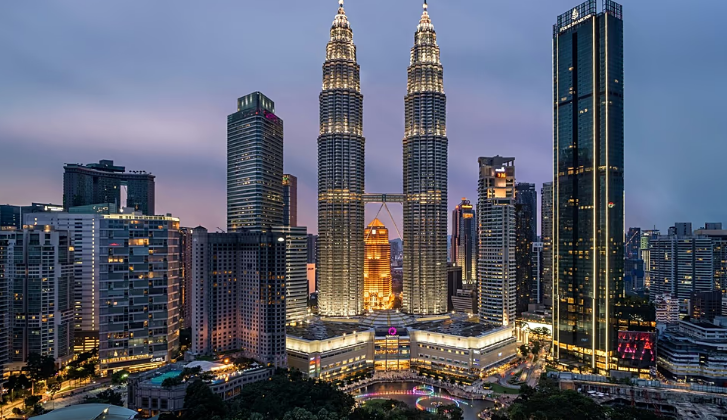
AirAsia X’s revived route between London Gatwick and the Malaysian capital will now include a stopover in Bahrain, the airline confirmed. The low-cost long-haul carrier is set to resume flights between London and Kuala Lumpur this summer, offering travellers a new connection via the Middle Eastern hub.
From 26 June 2026, passengers will be able to fly between Gatwick and Kuala Lumpur International Airport with a layover in Bahrain. Stopover times will range from 90 minutes to two hours, bringing the total journey to approximately 16 and a half hours.
The airline has announced promotional fares booked before 22 February for travel between 26 June and 30 November starting at €85 one-way. However, current ticket searches show the lowest available fares for this period at around €185 one-way from London to Kuala Lumpur.
AirAsia X has been steadily expanding its long-haul network. In mid-November, the airline introduced a direct service between Istanbul’s Sabiha Gökçen International Airport and Kuala Lumpur, a flight taking roughly 10 and a half hours.
The London route marks a return to Europe after more than a decade. AirAsia X previously operated direct flights from London and Paris Orly to Kuala Lumpur, but these were discontinued in 2012 due to rising jet fuel prices, higher taxes, and declining demand. Since then, the airline’s leadership, including CEO Tony Fernandes, expressed interest in restoring European services, with plans gradually materialising over the past few years.
Fernandes, now CEO of Capital A, AirAsia’s parent company, described Bahrain as a “strategic hub” for the airline’s European operations. “This is a defining step in the next phase of AAX’s growth,” he said. “Bahrain as our strategic aviation hub allows us to connect Asia with the Middle East and Europe more effectively while creating a scalable platform for future growth. Looking ahead, we will deepen partnerships with airports, tourism authorities and industry stakeholders to unlock new demand corridors.”
The airline has not disclosed which additional European destinations it may target next. Currently, AirAsia X serves around 150 destinations, covering cities in Australia, China, India, Japan, South Korea, and Uzbekistan, reflecting its wide-reaching network across Asia and beyond.
The relaunch of the London-Kuala Lumpur route with a Bahrain stopover signals AirAsia X’s renewed commitment to long-haul operations in Europe, combining affordability with strategic connectivity. For travellers seeking low-cost options on intercontinental flights, the route offers a competitive alternative to traditional carriers, while providing access to the growing Gulf aviation hub.
Travel
China Braces for Record 9.5 Billion Trips During Lunar New Year Travel Rush
Travel
Brazil Becomes World’s Fastest-Growing Tourist Destination in 2025
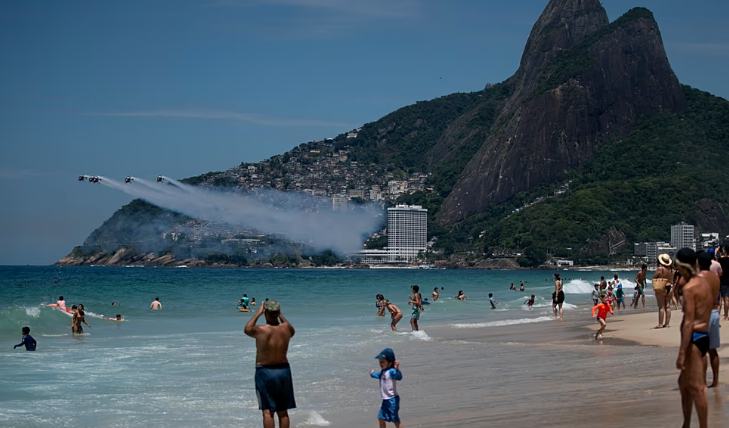
Brazil has emerged as the fastest-growing international tourist destination in the world, closing 2025 with a record 9.3 million visitors, a 37.1 percent increase from the previous year’s 6.7 million, according to the UN World Tourism Organisation (UNWTO). The surge has been driven by new air routes, particularly from Europe, and renewed international interest in the country’s cultural, natural, and gastronomic attractions.
Tourism already contributes 8 percent of Brazil’s GDP, and international travellers brought in around €7.3 billion last year, a significant boost to the economy as the country continues to recover and reposition itself on the global stage.
Europe has played a central role in this growth. Visitors from France, Portugal, Germany, Italy, the United Kingdom, and Spain totalled 1.8 million, a 20 percent rise from 2024. Spain alone accounted for 160,000 tourists, a 92 percent increase over three years, reflecting both growing interest in Brazil and improved air connectivity.
A key factor has been the introduction of new direct flights from Europe. In 2025, Iberia launched routes linking Madrid with Fortaleza in Ceará and Recife in Pernambuco, providing direct access to Brazil’s northeast, a region celebrated for its beaches, culture, and hospitality. These routes complement existing flights from Madrid and Barcelona to São Paulo, Rio de Janeiro, Salvador, and Campinas, reinforcing Lisbon and Porto as major European hubs for Brazilian travel.
São Paulo remains the country’s main entry point, hosting more than 2.7 million international visitors, followed by Rio de Janeiro with nearly 2.2 million and Rio Grande do Sul with 1.5 million.
Marcelo Freixo, president of the Brazilian tourism promotion agency Embratur, said the record numbers reflect years of coordinated efforts in international promotion, infrastructure improvements, and expanded air connections. He highlighted the importance of extending direct access to the northeast, noting that it allows visitors to experience Brazil’s authentic and diverse offerings.
Freixo also linked the tourism rebound to Brazil’s regained international standing under President Luiz Inácio Lula da Silva. “Brazil is now a respected country,” he said. “You don’t visit a country that is not respected. People have no interest in visiting a country that is not respected.”
Despite the record growth, security remains a key concern for international travellers. Freixo said Brazil has made notable progress in safety and emphasized that tourism itself contributes to safer cities. According to Embratur, 95 percent of visitors expressed interest in returning. To encourage longer stays and broader exploration, initiatives such as the Brazil Air Pass allow travellers to visit up to eight domestic destinations with a single fare.
Freixo also highlighted the warmth and hospitality of Brazilians as a unique selling point. “Our main export product is not coffee, it’s joy — and we have plenty of that,” he said.
With stronger connectivity, rising international respect, and a wide array of attractions, Brazil is positioning itself as a leading global tourist destination, with Europe, particularly Spain, emerging as a key partner in this new phase.
-

 Entertainment1 year ago
Entertainment1 year agoMeta Acquires Tilda Swinton VR Doc ‘Impulse: Playing With Reality’
-

 Business2 years ago
Business2 years agoSaudi Arabia’s Model for Sustainable Aviation Practices
-

 Business2 years ago
Business2 years agoRecent Developments in Small Business Taxes
-

 Home Improvement1 year ago
Home Improvement1 year agoEffective Drain Cleaning: A Key to a Healthy Plumbing System
-

 Politics2 years ago
Politics2 years agoWho was Ebrahim Raisi and his status in Iranian Politics?
-

 Business2 years ago
Business2 years agoCarrectly: Revolutionizing Car Care in Chicago
-

 Sports2 years ago
Sports2 years agoKeely Hodgkinson Wins Britain’s First Athletics Gold at Paris Olympics in 800m
-

 Business2 years ago
Business2 years agoSaudi Arabia: Foreign Direct Investment Rises by 5.6% in Q1

